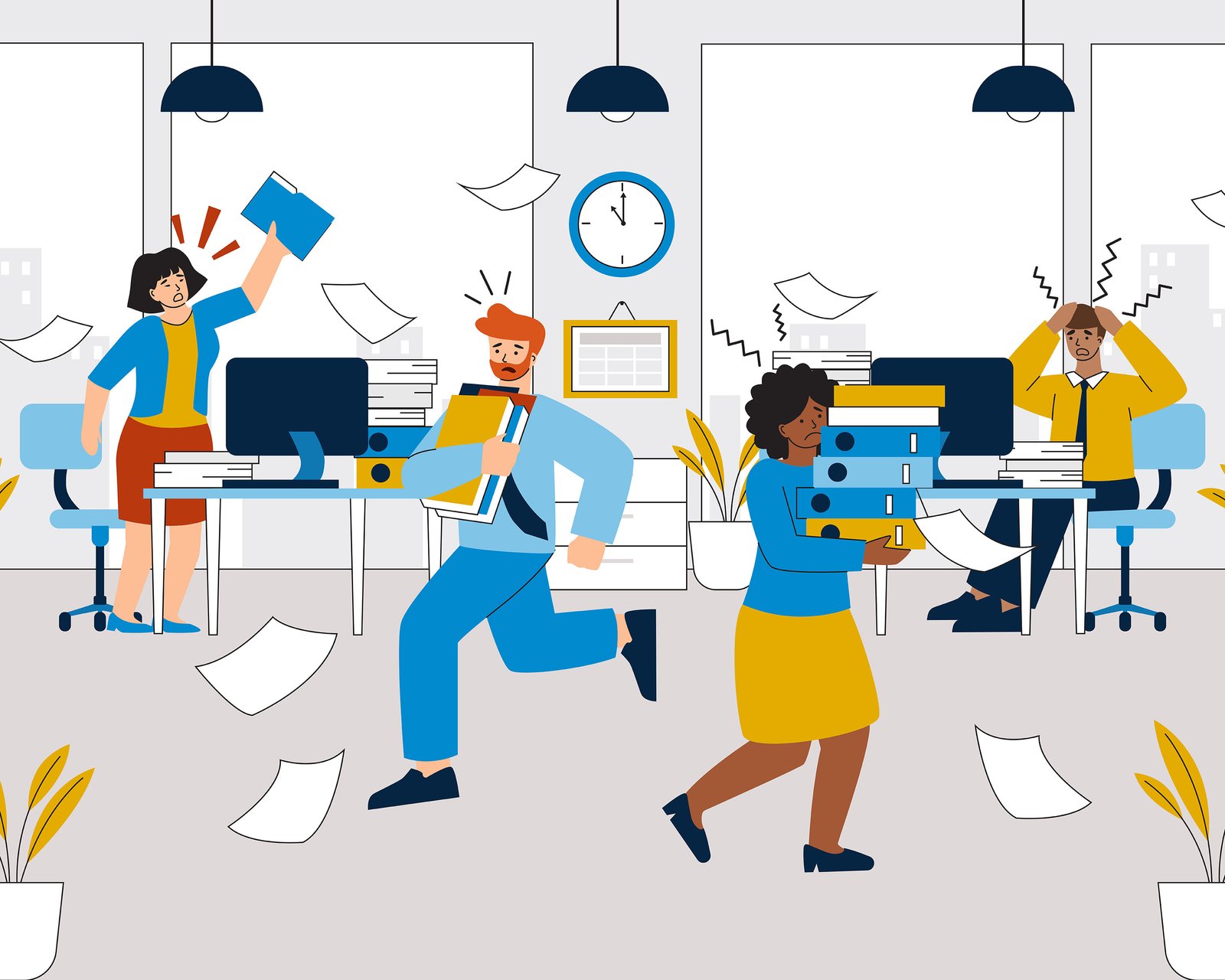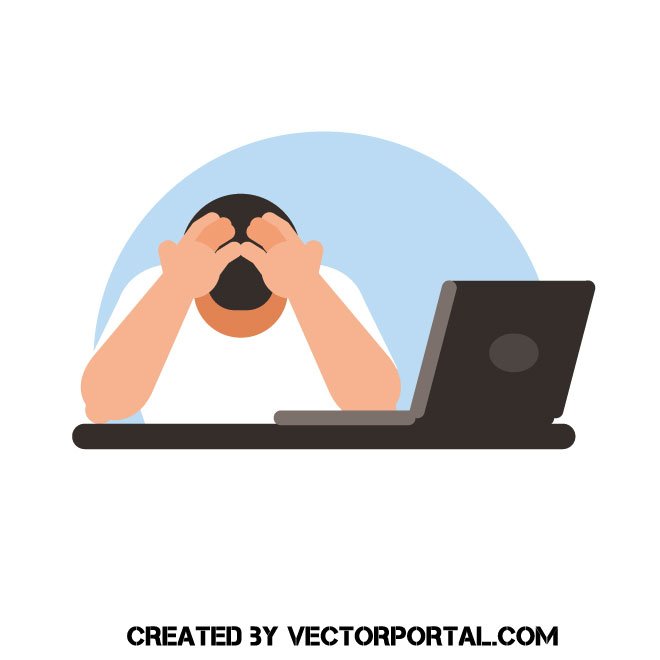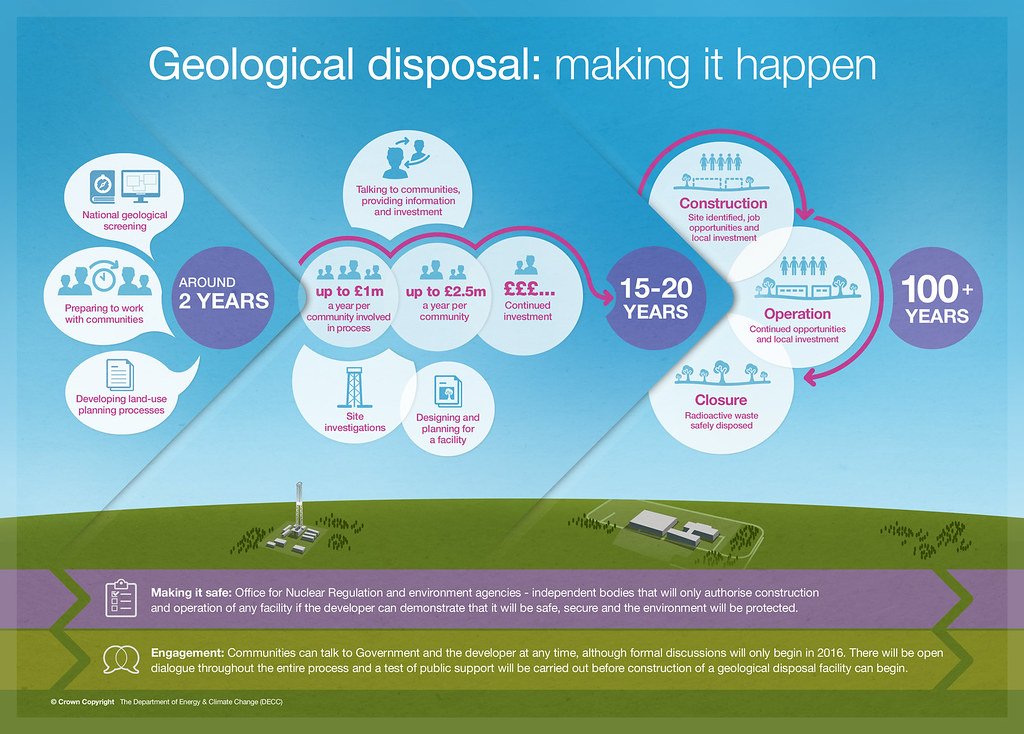In the hustle and bustle of our modern lives, stress has become an unwelcome companion that often hampers our productivity and overall well-being. Whether it’s looming deadlines, demanding clients, or a never-ending to-do list, the pressures of work can quickly take a toll on our mental and physical health. But fear not, for there are ways to tame this relentless beast and reclaim control over our lives. In this article, we will explore effective strategies to manage stress, allowing you to enhance your work efficiency and find a harmonious balance between productivity and tranquility. So, buckle up and get ready to embark on a journey towards a stress-free and more fulfilling work life.
Table of Contents
- Understanding the Impact of Stress on Work Efficiency
- Identifying the Sources of Stress in the Workplace
- Implementing Effective Stress Management Techniques
- Creating a Supportive Work Environment for Stress Reduction
- Developing Healthy Habits to Enhance Work Efficiency
- Q&A
- The Conclusion

Understanding the Impact of Stress on Work Efficiency
Stress, like an unwelcome guest, often finds its way into our lives, infiltrating our minds and bodies. But have you ever stopped to consider the profound impact it can have on your work efficiency? Stress can be a silent saboteur, lurking in the shadows and gradually eroding your productivity and overall well-being.
Here are a few key ways in which stress can hinder your work efficiency:
- Impaired focus: When stress takes hold, it becomes increasingly difficult to concentrate on the task at hand. Your mind becomes cluttered with worries and distractions, making it challenging to stay focused on your work.
- Reduced creativity: Stress has a way of stifling our creative juices. It dampens our ability to think outside the box and come up with innovative solutions. The pressure and anxiety can leave us feeling mentally drained and devoid of inspiration.
- Decreased motivation: Excessive stress can sap your motivation, leaving you feeling disengaged and uninterested in your work. The constant strain can make even the most exciting projects seem like insurmountable mountains.
It’s crucial to recognize the detrimental effects of stress on work efficiency and take proactive steps to manage it. By implementing stress-reducing techniques such as mindfulness exercises, regular breaks, and open communication with colleagues, you can regain control over your productivity and well-being.

Identifying the Sources of Stress in the Workplace
Working in a fast-paced environment can often lead to stress, affecting both our physical and mental well-being. It is crucial to identify the sources of stress in the workplace to effectively address and manage them. Here are some common factors that contribute to workplace stress:
- Excessive workload: When employees are overwhelmed with an excessive amount of tasks and deadlines, it can lead to feelings of pressure and anxiety.
- Lack of control: Feeling powerless or lacking control over one’s work can be a significant source of stress. This can occur when employees have limited decision-making authority or are micromanaged.
- Poor work-life balance: When the demands of work overshadow personal life, it can lead to stress and burnout. Struggling to find time for family, hobbies, and self-care can take a toll on overall well-being.
- Unclear expectations: When employees are unsure about their roles, responsibilities, or performance expectations, it can create stress and confusion.
- Lack of support: Feeling unsupported by colleagues or superiors can contribute to workplace stress. A lack of teamwork, communication, or recognition can make employees feel isolated and undervalued.
By recognizing these sources of stress, organizations can take proactive measures to create a healthier work environment. Implementing strategies such as workload management, promoting work-life balance, fostering open communication, and providing support systems can help alleviate workplace stress and improve overall employee well-being.

Implementing Effective Stress Management Techniques
When it comes to managing stress, it’s important to find techniques that work best for you. Here are some effective strategies to help you navigate through stressful situations:
- Practice deep breathing: Taking slow, deep breaths can help calm your mind and body. Inhale deeply through your nose, hold for a few seconds, and exhale slowly through your mouth. Repeat this several times to promote relaxation.
- Engage in physical activity: Exercise is a fantastic stress reliever. Whether it’s going for a run, practicing yoga, or dancing to your favorite tunes, physical activity releases endorphins that boost your mood and reduce stress levels.
- Establish a routine: Creating a structured daily routine can provide a sense of stability and control. Prioritize your tasks, set achievable goals, and allocate time for self-care activities such as reading, meditating, or enjoying a hobby.
- Reach out for support: Don’t hesitate to lean on your support system when stress becomes overwhelming. Talking to a trusted friend, family member, or therapist can provide valuable perspective and help you find solutions to your problems.
- Practice mindfulness: Being present in the moment and focusing on the here and now can help alleviate stress. Engage in activities that promote mindfulness, such as practicing gratitude, journaling, or engaging in mindful eating.
Remember, everyone’s stress management journey is unique. Experiment with different techniques and find what works best for you. By , you can improve your overall well-being and lead a more balanced and fulfilling life.
Creating a Supportive Work Environment for Stress Reduction
Building a supportive work environment is crucial for reducing stress and promoting overall well-being among employees. By fostering a culture of support and understanding, organizations can create a space where individuals feel valued, motivated, and empowered to manage their stress effectively. Here are some key strategies to cultivate a supportive work environment:
- Encourage open communication: Establish channels for employees to express their concerns, ideas, and feedback. Encouraging open dialogue helps create a sense of psychological safety, where individuals feel comfortable discussing their stressors and seeking support.
- Promote work-life balance: Recognize the importance of maintaining a healthy balance between work and personal life. Encourage employees to take breaks, use their vacation time, and prioritize self-care. This not only reduces stress but also enhances productivity and job satisfaction.
- Provide resources and support: Offer resources such as stress management workshops, counseling services, and wellness programs. Ensure employees are aware of these resources and actively promote their utilization. Additionally, consider implementing flexible work arrangements to accommodate individual needs and reduce stressors related to commuting or personal obligations.
- Recognize and appreciate: Regularly acknowledge and appreciate employees’ efforts and achievements. Recognizing their hard work and contributions boosts morale and creates a positive work environment. This can be done through verbal recognition, employee appreciation events, or even small gestures like handwritten notes or tokens of appreciation.
By implementing these strategies, organizations can foster a supportive work environment that prioritizes stress reduction and employee well-being. Remember, a supportive workplace not only benefits individuals but also contributes to the overall success and productivity of the organization.
Developing Healthy Habits to Enhance Work Efficiency
In today’s fast-paced world, it is crucial to cultivate healthy habits that can boost our work efficiency and productivity. By incorporating simple yet effective practices into our daily routine, we can optimize our performance and achieve greater success in our professional endeavors.
1. Prioritize Self-Care: Taking care of ourselves is paramount to maintaining high levels of productivity. Make sure to get enough sleep, exercise regularly, and eat nutritious meals. These habits provide the foundation for a healthy mind and body, enabling us to tackle tasks with renewed energy and focus.
2. Practice Time Management: Efficiently managing our time is key to maximizing productivity. Utilize tools such as calendars, to-do lists, and reminders to prioritize tasks and allocate time accordingly. Break down larger projects into smaller, manageable tasks, and set realistic deadlines to avoid feeling overwhelmed. By staying organized and disciplined, we can make the most of our working hours.
3. Embrace Mindfulness: Incorporating mindfulness techniques into our work routine can significantly enhance our focus and concentration. Take short breaks throughout the day to engage in deep breathing exercises or meditation. This practice helps clear the mind, reduce stress, and improve overall mental well-being. By being fully present in the moment, we can approach our work with clarity and heightened awareness.
4. Foster a Positive Work Environment: Surrounding ourselves with positivity can greatly impact our work efficiency. Cultivate a supportive and collaborative atmosphere by fostering open communication, recognizing achievements, and offering constructive feedback. Additionally, personalize your workspace with motivational quotes or plants to create a pleasant and inspiring environment.
By adopting these healthy habits, we can optimize our work efficiency, increase productivity, and ultimately achieve our professional goals. Remember, small changes can lead to significant improvements, so start incorporating these practices into your daily routine today!
Q&A
How does stress affect work efficiency?
Stress can negatively impact work efficiency by impairing concentration, decision-making abilities, and overall productivity. It can also lead to burnout and decreased motivation, making it essential to manage stress effectively.
What are some effective stress management techniques?
There are various techniques to manage stress, such as practicing mindfulness and meditation, engaging in regular physical exercise, setting realistic goals, and maintaining a healthy work-life balance. Experimenting with different techniques can help individuals find what works best for them.
How can taking breaks help in managing stress?
Taking regular breaks throughout the workday can help reduce stress levels by allowing individuals to recharge and refocus. Short breaks can improve concentration and prevent mental fatigue, ultimately enhancing work efficiency.
What role does proper time management play in stress management?
Proper time management is crucial for stress management as it helps individuals prioritize tasks, set realistic deadlines, and avoid feeling overwhelmed. By effectively managing their time, individuals can reduce stress levels and improve work efficiency.
How can a supportive work environment contribute to stress management?
A supportive work environment, where colleagues and supervisors offer understanding and assistance, can significantly contribute to stress management. Open communication, teamwork, and a positive atmosphere can help individuals cope with stress and maintain better work efficiency.
Why is it important to address the root causes of stress?
Addressing the root causes of stress is essential for long-term stress management. By identifying and addressing the underlying factors causing stress, individuals can implement effective strategies to prevent stress from recurring, leading to improved work efficiency.
What role does self-care play in managing stress?
Self-care plays a vital role in managing stress as it involves taking care of one’s physical, mental, and emotional well-being. Engaging in activities that bring joy, practicing self-compassion, and prioritizing self-care can help individuals better manage stress and enhance work efficiency.
The Conclusion
In the whirlwind of our modern lives, stress has become an unwelcome companion, lurking around every corner, ready to pounce on our productivity and well-being. But fear not, for armed with the right tools and mindset, we can conquer this formidable foe and unlock the true potential of our work efficiency.
Remember, managing stress is not a one-size-fits-all solution. It’s a delicate dance, a symphony of self-awareness and self-care. As you embark on this journey, take a moment to reflect on what truly brings you joy and peace. Is it a walk in nature, a cup of soothing tea, or perhaps a heartfelt conversation with a loved one? Whatever it may be, make it a priority in your daily routine.
Embrace the power of mindfulness, for it is the key that unlocks the door to a calmer mind. Take a pause, breathe deeply, and let go of the worries that weigh you down. In the midst of chaos, find solace in the present moment, for it is here that you can truly thrive.
Don’t be afraid to seek support when needed. Reach out to trusted friends, family, or even professional counselors who can lend a listening ear and offer guidance. Remember, you are not alone in this battle against stress. Together, we can create a support network that uplifts and empowers us to face any challenge that comes our way.
Lastly, never underestimate the power of a good laugh. Laughter truly is the best medicine, and it has the remarkable ability to dissolve stress like a ray of sunshine piercing through dark clouds. So, surround yourself with humor, whether it’s through funny videos, witty jokes, or simply sharing a lighthearted moment with colleagues. Let laughter be the soundtrack of your journey towards better work efficiency.
As we bid farewell, remember that managing stress is not a destination, but a lifelong practice. Embrace the ebbs and flows, the highs and lows, for they are all part of the beautiful tapestry of life. With each step forward, may you find yourself more resilient, more focused, and more efficient in your work. So go forth, dear reader, and conquer stress with grace and determination. Your path to better work efficiency awaits.
As an affiliate, my content may feature links to products I personally use and recommend. By taking action, like subscribing or making a purchase, you’ll be supporting my work and fueling my taco cravings at the same time. Win-win, right?
Want to read more? Check out our Affiliate Disclosure page.